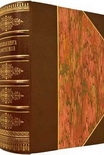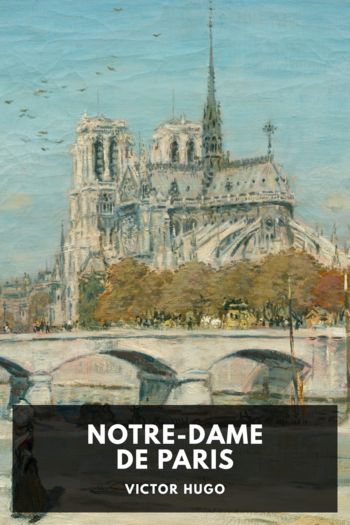Mister Toebones Brooks Haxton (bookstand for reading txt) 📖

- Author: Brooks Haxton
Book online «Mister Toebones Brooks Haxton (bookstand for reading txt) 📖». Author Brooks Haxton
Fifty years after Kropotkin died, radar
showed at Vostok Station in the Antarctic
under a glacier two miles thick
one of the largest lakes on Earth.
Now they have found a smaller
such lake under the ice on Mars,
water, saltier than the Dead Sea.
After forty years in exile, and a few
in prison, Kropotkin came home
to a cottage he shared with his wife.
There, in conscience, he wrote
that taking hostages for the revolution
was wrong. When company came, watched
by the secret police, he would play
transcriptions from the Italian opera
so that his musical friends could sing.
Thanks to the Makers of Shells
Factory workers before I was born
cut and fitted eighteen pieces of oak wood
to construct the chair at my desk
where I have seated myself,
as a hermit-crab-tail might slip into the vacant shell of a conch.
Here I let my mind walk sideways,
fingertips tapping the keyboard in my lap more feelingly
because each outer shell of a fingernail holds
the tingling pad alert
around its inner shell of bone.
My laptop closes on its hinge,
the way the operculum of a twisted necklace snail might
pull shut at the approach of the hermit crab,
the spool of words, like the snail, enveloped then
in the nacreousness in the dark.
Inside my skull another operculum covers
the insular lobe
where consciousness takes place, as if the mind
were a shell for the flesh, or flesh were a husk
for the cosmic one.
Message, 1944
In Budapest, after the cherry blossoms fell,
a colonel in the SS asked a leader
from the underground
to carry a message abroad: the SS
would release one million Jews
in exchange for ten thousand trucks
and a thousand tons of tea, coffee, cocoa,
and soap for soldiers on the Russian front.
“Blood for goods,” he called the exchange.
Then he inverted the phrase
for effect, “goods for blood.”
Almost no one herded onto the trains in Budapest
knew what the leaders of the resistance knew.
In June, on a typical day at Auschwitz, more
Jews died than soldiers in both armies fell
in Normandy on D-Day, which was the sixth.
On the seventh, British intelligence met
the Hungarian messenger’s train at Aleppo.
He was trying to help his people, they thought,
but the German offer had to be a trick.
From Aleppo the British took him
to Cairo where they questioned him
for four months. The diplomat
in charge of refugees asked,
“What shall I do with those million
Jews? Where shall I put them?”
The British thought the exchange
of blood for goods would be
collusion against their ally Russia.
Transports of prisoners might be
deployed as human shields for the enemy.
Confusion, involving the demand
for medicine, shelter, and food,
would prolong the end of the war
and undermine negotiations to follow.
Churchill declined the offer. Experts,
some of them, thought that the murder
of Jews, exaggerated in propaganda,
was already reaching an end.
From mid-May into mid-July,
in fact, the SS murdered four hundred
thousand more Hungarian Jews,
more than the total number of American
soldiers killed from the beginning
until the end of the war.
The messenger upon release
joined the resistance in Palestine,
and fought to overthrow British rule.
Later, secret police from Israel kidnapped
the German colonel near his house
in Argentina and brought him
to Jerusalem for trial. He pleaded
innocent. Found guilty, he was put
to death by hanging, this in a prison
near where eyeless scorpions
live in limestone caves.
The messenger believed at the end
of his life that the British assessment
of “blood for goods” was correct.
He regretted his part in the offer.
Blut gegen Ware, at any rate, still
describes the logic of money and war.
Unlit Kitchen, 5 A.M.
After the rain
an old man saw
through the spider web
on a fogged window
far down under the cedars
a cloud on the pond
lift into the daylight.
To Floyd, Louisiana
ca. 1807–ca. 1918
In the Second Great Awakening
Moses Floyd, a Methodist preacher,
came from Pennsylvania
to the swamp, and a few years later
here you were, a town with a dry goods store,
a church, a courthouse, and saloons.
Young men staggered into the dusty street
where guns were a kind of law,
like the hanging tree, and the documents
stating who owned what and whom.
But the steamboats quit their run
on the bayou, and the railroad
and the highway left you, church
and courthouse, store, saloons, and all,
abandoned. Buildings downtown
disappeared. Now there’s only a crook
in the two-lane through the level
corn and cotton fields slowly
giving up your name to oblivion,
like the forgotten name of the mounds
nearby on Bayou Macon, where the people
who gathered hickory nuts, persimmons,
scuppernongs, and mayhaws, cast
their weighted nets for catfish, cooked
in covered pits, using ceramic stones
to set the heat. One of them carved
a bannerstone in the shape of wings,
another made a throwing stick for a spear,
and all of them died three thousand years ago.
A few days’ walk southwest
is another circle of mounds, these
from before the reign of Gilgamesh.
The people who built them
fished for the drum which Frenchmen
taught me as a boy to call the gaspergou.
Near there, Floyd, when you were young,
children huddled among their elders
on a steamboat called the Cleopatra.
On a river through deep woods
sheathed in ice they were passing
into another world, taken by strangers
out of the only world they knew
in a kind of boat that trembled
with a guttural moan. And near you,
Floyd, under trees far larger
than any alive now in that region,
another party of Choctaw came on foot,
young men, old men, women, and children
following lost guides in the swamp where limbs
snapped under the weight of ice and toppled.
Sunset, Mare Spumans
The dust on the floor
of the Foaming Sea
is barren in all directions.
One last spark at the uppermost
limb of the Sun blinks out
into a seemingly
infinite swarm of stars,
and the dust cools
in the next Earth day
from the boiling point
of water down to the freezing
point of gasoline.
From the Journal of Dr. Beaurieux
Witness to an execution by guillotine, June 28, 1905
After the blade dropped, and the eyelids twitched,
the spasms tugging at the lips went calm,
and when I called out to the head, “Languille!”
the eyelids lifted up, this time, I swear,
in a distinctly normal movement, slow,
as if awakening, or torn from thought.
With pupils focusing themselves, the eyes
looked sharp, not like a dying man’s, not vague,
and when the lids went shut, I called again,
“Languille!” and again, without a





Comments (0)